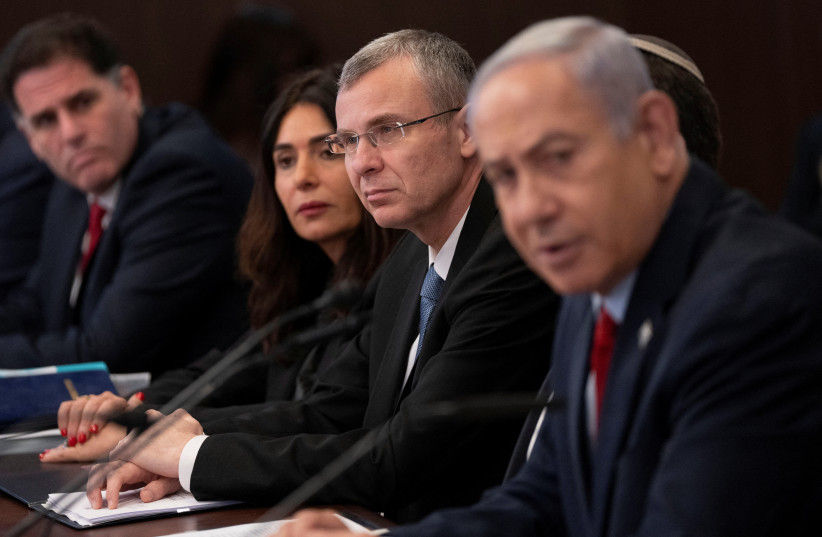The High Court of Justice issued a conditional order against Justice Minister Yariv Levin and the Government of Israel on Thursday requiring them to explain why Levin is delaying in convening the Judicial Selection Committee.
All other responses from both sides are to be submitted to the court by Monday.
A hearing on the matter is set for Tuesday after The Movement for Quality of Government (MQG) and Yesh Atid alongside a group of 46 citizens petitioned the court to rule that Levin has to convene the committee as the law states that it's the justice minister's responsibility to convene the committee when they see that new judges are needed.
Levin and the government submitted a request to have the order canceled, saying that it was "issued without authority."
Levin has refused to convene the committee until the section of the judicial reform that changes its makeup is passed, and while he said this was the next step when the government passed the law to limit the reasonableness clause, that may not mean the government will get to it when it returns for its winter session.
Judicial reform hold up
The rest of the judicial reform may be held up as the President's Residence continues to try and pass a compromise that would require an 18-month freeze of legislation while United Torah Judaism has announced that it will not allow any more of the reform to be passed until the Draft Law is.

Meanwhile, as judges continue to retire, if the Judicial Selection Committee is not convened by the end of the year, Israel's judicial system will find itself at a shortage of more than 50 judges, including two High Court justices, which will greatly impact the system.
"The High Court's decision to issue a conditional order for Justice Minister Yariv Levin is a clear message from the court to the Israeli government: Israel's citizens are more important than politics," said opposition leader and one of the petitioners Yair Lapid in response. "Today, the High Court is saying what we've been saying for months. Leving is holding the Judicial Selection Committee and Israel's citizens hostage and is working in opposition to his responsibilities and the law."
"Just before the High Holidays, in which we will all stand in judgement of Heaven, the court reminds us all, and especially Minister Levin, that the law applies to us all," said MQG. "Even those who try their best to remove [the court] and destroy the rule of law."
"Once again, the standards have changed when it comes to this government regarding matters that affect the High Court justices themselves," said the coalition. "They are once again overstepping what is acceptable. Once again giving up on a preliminary debate. Once again making decisions before a representative of the government enters the court.
"Just as we need calm and responsibilities from all the governing branches, the system that's meant to be the most restrained is hastily and irresponsibly using its judicial power."
Michael Starr contributed to this report.
